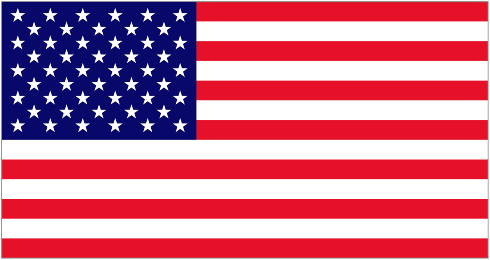If I were to collect all my thoughts on morality and the meaning of life into one piece of writing – which I may, someday, actually do (more for my own betterment than as a pulpit) – the introduction would go something like this.
I do not consider myself to be morally superior to others. Or at least I try not to, for that would be immoral.
I do, however, think it is acceptable – compulsory, even – for people to judge the world around them, and the people that make up that world. The word "judge", and all words related to it, have taken on such a negative connotation – most people will consciously and subconsciously react negatively to the word "judgmental". But judging does not have to start with huge, mind-altering preconceived notions, or lead to ideas of superiority or overbearing feelings of resentment toward others.
Judgment, in and of itself, without all of the things that have attached themselves to the process as civilization has advanced, is simply another term for reason. It is the process of making a decision based upon information one's senses acquire from the surroundings. If I say, "The road is closed ahead," and you decide to take another route – or even if you decide to continue the way you are going – you have just exercised your judgment, or reason. It is a necessary process by which we make it through each day, and by which society continues to advance, for better or for worse.
The same holds true for judgments of morality. Whether a person is reasoning through choices and trying to judge which one is morally right, or that person is making judgments regarding their own character or the character of another person, the process is absolutely necessary. It provides a better understanding of the world and an individual's immediate surroundings, and it gives that individual the proper tools with which to make informed, rational, and sovereign decisions.
Reason, or judgment, is half of what makes us human. The other half is emotion. Science simply cannot and will never account for human emotion to an extent that pleases me. There are some emotions – fear and lust, for example – that are instinctual and can be explained in a Darwinian model. But then there are emotions that don't fit in any scientific explanation. Therefore, I firmly believe that most of human emotion takes place on a somewhat higher plane of existence than the physical.
If we allow our emotions to take part in the reasoning process, we open ourselves to a deeper connection to this higher plane. This connection – this emotion – binds the entire human race in a way that none of the superficial subdivisions we have created can ever possibly divide us. It's what allows us, if we open ourselves to it, to feel sympathy for someone we've never met when we hear about their dire circumstances. It allows us to wallow in sorrow or bask in happiness that no scientific theory could ever possibly justify. It allows us to love one another in all the various ways and degrees love is possible. It gives us gut feelings about some areas of morality that are more profound and moving than even the most eloquent writer and thinker could reason through them. It gave the founding fathers of the United States the "self-evident" rights that they founded the nation to promote: Life, Liberty, and the Pursuit of Happiness. These things can be rationally justified, but even without doing so our emotions make them self-evident.
It is this combination of reason and emotion that both drives us to wonder what's right and wrong, and gives us the tools to figure that out. Whether our hearts and minds agree on a judgment or disagree, the fact that they are working together to form a sound judgment is what really matters. And since this judgment is key to survival as well as to understanding the world, it is therefore necessary, in order to live a full, rich life, for a person to reason and feel through the formulation of their own personal set of moral standards. These standards can then be applied to the process of judgment, as a sort of shortcut to the process. For example, one can reason through one single time why it's wrong to kill, and then apply that standard to all of one's judgments.
I admit that at this early stage of my life, my experience level is rather low. Nevertheless, I have spent a great deal of time in reflection about morality. Through this reflection I have formed the moral standards that guide my judgments and actions. I don’t consider them to be perfect, or somehow superior to all other ways of viewing morality. But they’re the best I’ve come up with yet.
Saturday, April 28, 2007
Subscribe to:
Post Comments (Atom)





5 comments:
You may be at an "early stage" of your life, Zach, but you've thought systematically through questions in a way that I doubt most people do at any time during their entire lives. I think I'll send you a second "comment," discussing the content of your post, after I've figured out how much I agree and disagree with it. :-) It's fairly deep, compared with my posts on having my house painted. :p
Right now, I just want to assure you that you are a pretty impressive high school student. If you have trouble finding friends who share common interests with you, beyond the usual stuff of daily teenage life, I'm not surprised. I'll mention again that friends like that will be easier to find once you're in college, but, depending on the school, you may be a bit disappointed even then. You're a philosopher by temperament, and most people aren't.
I don't know anything about you, other than what you've published in your two blogs -- and you've deleted some of the posts that gave me the most insight. But when anyone realizes that he's different from his peers in ways that his peers would consider important, it makes him feel like an outsider. This is true even if his friends don't see him as all that "different" at all.
And when you feel like an "outsider," you tend to start asking questions about life and people and your relationship to the universe that you are less apt to ask if you fit in so easily that you can go from day to day on cruise control, unselfconsciously. I don't mean to exaggerate, because every reasonably intelligent teenager has his moments when he feels alienated and alone in the universe, and wishes his life could be like the happy teenagers on TV, like he assumes all his friends are. (Lots of adults have similar feelings -- they just hide them more skillfully!)
Anyway, these feelings are unpleasant, and you can feel extremely lonely and "different," even when you have a supporting family and close friends -- you feel they wouldn't feel so close if they understood how weird you really were. :-) But those thoughts also can cause an intelligent and/or talented young person to develop insights and interests that give him a headstart that will last his entire life, assuming a reasonable amount of hard work and a bit of luck in his life. If you interviewed persons who have accomplished a lot, in arts, sciences, even, to some extent, politics, you would find that most of them felt "different" and alienated when they were teenagers or even somewhat older --even those who were student body presidents or Eagle scouts.
Anyway, you have thought through some important questions that you felt you had to think through because of aspects in your life that you felt made you different from your friends, and left you unable to simply follow the herd as others seemed to feel comfortable doing. I'm sure this has been difficult and painful, but you're a stronger guy because of it, and have a more practiced ability to reason and -- in your case, certainly -- to write.
I very much hope your parents appeciate how lucky they are to have you for a son -- I suspect they do, just piecing things together. Lots of times, when fitting in with the crowd is a problem, having a close relationship with your folks and your siblings, if any, gives you the emotional support to muddle through until things look better. (And I don't mean that I think you're miserable right now! Just that you probably feel frustrated with high school life in general.)
As I say, after all this amateur psychology of mine, for which I have absolutely no qualifications other than certain similarities with you in my own life, I think I'll write about what you actually discussed in your post later when I feel more ambitious philosophically. :P This comment is kind of muddled, and maybe too personal, and if you want to delete it after you read it rather than have it clutter up your blog, that's fine.
Have a great weekend!
Well, if that's "amateur psychology," I'd be afraid to see how much a professional could tell me about myself. :S
Then again, I'd say it's in my writing that I expose my inner self most readily, and it's my writing that you've seen.
I like it. Assuming you're going to approach morality from a non-religious point of view, as you do, I think you've done some clear thinking and drawn some good conclusions.
I'm honestly not sure whether what you call the "emotional" is actually on a different plane from the physical. Religious teachers traditionally agree with you. Scientists typically don't Maybe everything can be explained by physical processes, but I don't know if that's true.
It's certainly true that it's hard to explain empathy, love of beauty, and selfless love of others in purely Darwinian terms. And even if these feelings have a root in hormones and instincts, humanity at its best has certainly carried these feelings far higher than those roots. As you've pointed out eloquently.
The idea of hearts and minds working together to work out moral values isn't bad theology actually! The hard part is applying these general principles to specific real life problems, right?
That's why we have sincere, honestly nice people differing so much on moral issues, even when there is nothing in the Bible or whatever their religious writings might be, to support one side or the other.
You're going to really enjoy taking a philosophy course or two in college. (You ARE planning to go to college, aren't you? Your profile seems to suggest you aren't sure.)
I suppose a lot of what I believe in relies on a basic faith-based assumption: that there are areas of human nature that are not scientifically explainable. Whether this means that there's a higher power involved in the world, or this means that we're simply opened up to a higher plane that we can't see empirically, I don't know. That's what sets me apart from most religious people: I believe in something, but I don't presume to know what.
I have been exposed somewhat to philosophy through my Lincoln-Douglas (philosophical) debate on the Speech & Debate team this year. It's a fascinating subject, and one that I intend to continue to explore as I get older.
As for the college thing: The question at this point isn't really whether I want to go to college (which is a definite yes), but rather where I'll go and what I'll pursue.
Excellent. I would have shot myself if you said you had aspirations to be a Burger King assistant manager.
Post a Comment